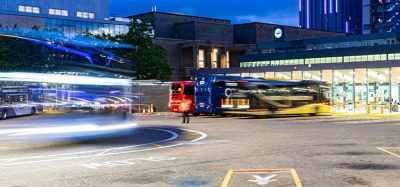Coach sector rallies for creation of National Zero Emission Strategy
- Like
- Digg
- Del
- Tumblr
- VKontakte
- Buffer
- Love This
- Odnoklassniki
- Meneame
- Blogger
- Amazon
- Yahoo Mail
- Gmail
- AOL
- Newsvine
- HackerNews
- Evernote
- MySpace
- Mail.ru
- Viadeo
- Line
- Comments
- Yummly
- SMS
- Viber
- Telegram
- Subscribe
- Skype
- Facebook Messenger
- Kakao
- LiveJournal
- Yammer
- Edgar
- Fintel
- Mix
- Instapaper
- Copy Link
Posted: 15 March 2023 | Intelligent Transport | No comments yet
CPT’s Zero Emission Coach Taskforce’s new report identifies the need for low carbon fuels and zero-emission infrastructure to sustain affordable and sustainable coach travel in the UK after 2040.


Credit: Confederation of Passenger Transport
A greater use of low carbon fuels in the short-term and more zero-emission re-fuelling or charging infrastructure as part of a National Zero Emission Coach Strategy are needed to maintain affordable long distance coach travel when new diesel vehicles are phased out in 2040, according to a report by industry experts from the Zero Emission Coach Taskforce (ZECT) that’s led by the Confederation of Passenger Transport (CPT) and leaders from the coach, manufacturing and supply industries.
ZECT’s recently published report Coach Route Map to Destination Zero, sets out how, with the right government support, the sector could make great strides towards meeting its decarbonisation goals. It includes positive quick-win, cost-neutral solutions to help the sector, 81% of which are family or individually run, to successfully transition to zero-emission vehicles by 2050.
Ian Luckett, Chair of ZECT, said: “Our report reveals that coach operators are wholly committed to decarbonising their 27,500 strong fleet in time for net zero targets. We’ve identified simple and value-for-money solutions that include legislation changes on vehicle weight loads, tax incentives to encourage low carbon fuel use until zero-emission technology becomes more viable, as well as incorporating coaches into zero-emission government funding already committed to cars, vans, buses and HGVs.”
Graham Vidler, Chief Executive of the Confederation of Passenger Transport, said: “Coach is already the greenest way of travelling around the country and the coach sector is determined to stay ahead on the journey to net zero. ZECT was formed to build a collaborative approach between government and industry and it is crucial the Taskforce’s constructive recommendations are delivered imminently to provide confidence to the sector to invest in a green future.”
Kevin Maynes, Operations Director at Maynes Coaches, said: “While we are ready and excited about the challenge of decarbonising our fleet, some coach businesses are frightened to invest in new technologies due to cost and a lack of information on which step to take – hydrogen or electric. If there’s a greater focus on more re-fuelling and re-charging points through a government policy shift, then more operators and the rest of the UK will follow suit in investing in low and net zero technologies.”
Construction begins on WMATA’s second zero-emission bus facility
A third of operators’ work is made up of 600,000 daily home to school trips. It is the long-distance services on top of this, which cater for holidaymakers, inter-city travellers and sports fans, that keep the sector thriving and in business. The coach sector contributes £14 billion to the UK economy each year and in 2019 alone, had been responsible for 23 million visits to tourist hotspots.
To sustain this important work, ZECT has identified ways in which the sector can play its part in decarbonisation. Solutions include: transitional technologies, working with manufacturers on trials and specifications for future zero emission coaches, sharing of best practice and the enabling of vehicles owned by other operators to access re-charging or re-fuelling infrastructure at coach depots to create a reliable network.
The report calls for the government to provide additional support through:
- Installing coach friendly hydrogen and electric infrastructure
- Incentives for low carbon fuels to increase supply and encourage use
- Vehicle weight amendments: Zero emission powertrains are significantly heavier than standard diesel engines.
With the UK’s net zero target of 2050 in focus, CPT is developing an online platform to help operators navigate the process, including the installation of infrastructure. Coach operators are encouraged to contribute to the Taskforce by feedbacking on their own experiences of zero-emission vehicles.
If you liked this, you may also be interested in:
▶ Transdev Group announces acquisition of First Transit
▶ Keolis North America continues partnership with Foothill Transit
Related topics
Air Quality, Alternative Power, Public Transport, Sustainable Urban Transport
Related modes
Bus & Coach
Related countries
Scotland, United Kingdom
Related organisations
Confederation of Passenger Transport UK (CPT), Zero Emission Coach Taskforce (ZECT)
Related people
Ian Luckett







